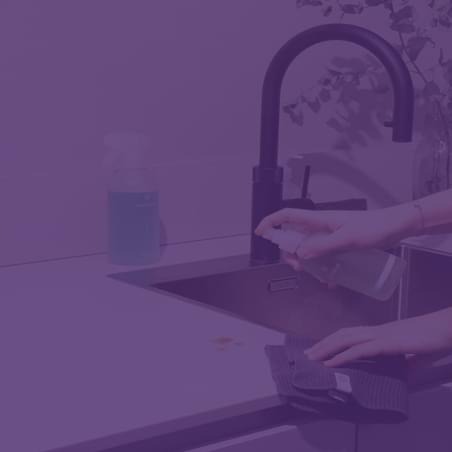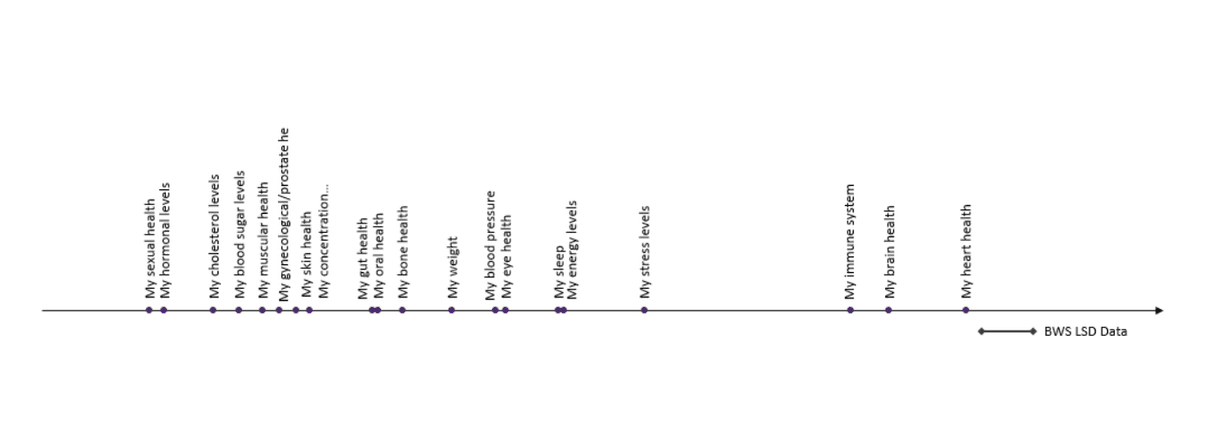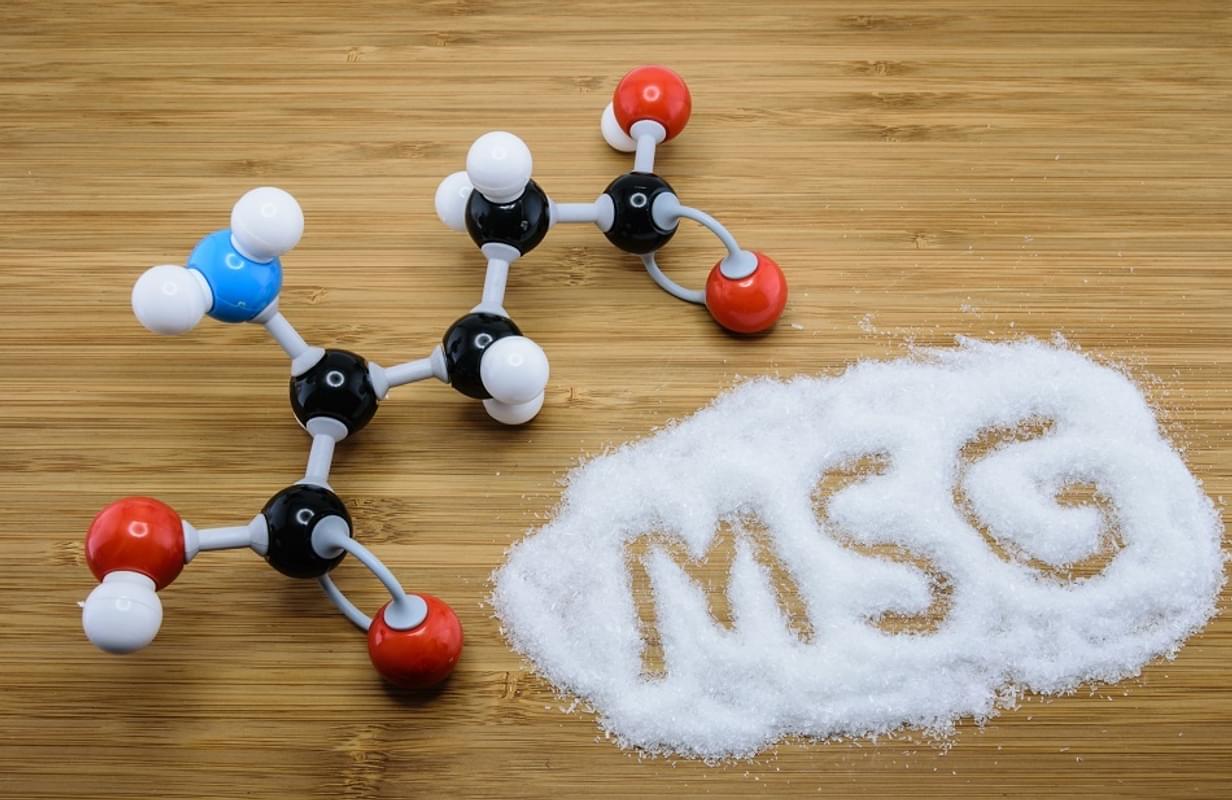Insights

17 Feb, 2026
Five Products: When World’s Collide. The Changing Face of Cleaning
Read More
Andrew Wardlaw
25 Nov, 2021 | 5 minutes
In a brand new audit of people’s health priorities, we’ve uncovered many surprises. The shared experience of a pandemic has created a global ‘top three’ – and brain health is right up there! Why is this and what are manufacturers doing to develop this dynamic functional space?
In the evolution of health and well-being, everything just got more serious. People are wanting more from their diets. Witness the fact that we’re buying record amounts of vitamins and food supplements. We expect functional food and beverage products to be the biggest trend of this decade, with more scientifically set propositions holding an advantage.
A brand new MMR study, which used gaming techniques to tease out people’s true intentions, found that we live in an era where sleep is more important that weight management; where eye health takes precedence over gut health. And brain health shares top billing alongside heart and immune health.
To find out what really bothers the post corona consumer, we tested over 30,000 combinations of competing health priorities across the U.S, U.K and China.
Now, there are plenty of surveys out there that’ll assert that gut health is important, but who’s going to tell you it isn’t? Pitching gut heath against 19 other pressing issues – as MMR did – reveals why most of us never get around to our gut. It’s simply too far down most people’s priority lists!
Results show a battle between heart & mind in all corners of the world, with brain health battling for pole position as we emerge from a pandemic.
Andrew Wardlaw, Chief Ideas Officer, MMR
The fact that brain health managed to win through so dramatically – into second place and on a par with immune health – is remarkable, and something that would have been inconceivable just a few years ago.

Source: MMR Research Worldwide. 2084 people in U.S and U.K only. September 2021.
The rise of brain health has been driven by two distinct dynamics. First, there is the pace of modern life: the demands of work and the sheer volume of information that we must process on a daily basis. This drives a need to support cognitive performance. Second, there is rising incidence of cognitive illnesses such as dementia and Alzheimer’s. This drives a need to guard against cognitive decline.
In China, the most populous developing country in the world, dementia represents a serious challenge and is gaining public awareness. Here, brain health tied with heart health for second place, just behind immune health. Its importance is a likely response to an aging population.
Meanwhile, in Japan, one of the world’s most demanding societies, it is predicted that 1 in 5 people over 65 will develop the disease. In response, food manufacturers have been investing in robust consumer trials, with promising results from surprising quarters.
This Japanese firm has compiled evidence that shows that amino acids like MSG could support cognitive health. The company recently sponsored a trial with dementia patients. It found that candidates taking MSG measured significantly better cognitive ability.

Also from Japan, this innovative dairy company is rolling out a suite of products containing a prebiotic strain that supports memory function in older adults. Morinaga ran a study with people aged 50-79 who suffered with minor cognitive impairments. The test cell saw a significant improvement in memory versus the control cell. Notably, the company has received an award for its research, normally reserved for top academic institutions.
These examples suggest that food manufactures are starting to take the lead in addressing society’s most pressing problems.
Supporting cognitive performance in Europe is Clutch Cognition. It’s the brainchild (sorry) of a molecular biologist, a medical doctor, and a nutrition innovation expert. Its range of herbal drinks are adding to a fast forming cognitive health beverage category that currently lags behind America.
A key ingredient used in Clutch Cognition is Sibelius, a sage extract. It delivers cognitive benefits and the brand claims that results are evident within an hour of consumption. Clutch says that it is the first beverage brand in the world to include it as part of its patent-pending recipe.
It is all about creating the ultimate natural functional products for the brain. The scope of our business is to help ordinary, generally healthy citizens of the modern world live smarter and better.
Rune Rønhave Laursen, Founder, Clutch Cognition.
These are important times for Brain Health, and with growing evidence supporting emerging ingredients such as Lion’s Mane, the opportunity to provide consumers with something new to address modern health concerns are plentiful.
Products supporting cognitive performance are nothing new of course. It’s a trend that started some years ago. However, there have been countless failures, and one of the most likely reasons for this will have been a failure to convince the consumer of the benefit during the act of consumption.
The fact is - products playing in functional spaces have to do more than merely taste great. The product, as part of the total user experience, must pull a series of sensory levers that inform at a much deeper, less conscious level – that leave the consumer believing on all levels of cognition.
Our sensory teams got hold of some Brainy Chocolate, made by the Fun Chocolate Company in America. One of sensory levers pulled by this product is a prolonged bitter taste in the mouth post consumption. It’s a clever example of the Peak-End Rule that states that people tend to remember the peak of and experience, and how it ends. With Brainy Chocolate, the ending lasts in excess of 15 minutes and goes along way in supporting the belief that the functional benefit is indeed kicking in.
The finish is a long-lasting bitterness, reminding you of the functional benefit long after the act of consumption.
Sam Hammond, MMR Sensory Scientist.
For many years, we have observed people’s growing anxiety about brain health. This goes further than other reported short term issues such as sleep and stress. The MMR survey reveals just how important brain health has become. It has taken a pandemic for people to realize that it’s time to be more proactive about mind and body, and so this is the time to ramp up development in this space in ways that wholly convince the consumer, and do not add to the pile of previous attempts that didn’t quite make the grade.
Is brain health now top of mind? For more information to support your innovation, download our brand new guide to the Functional Future, containing full results and analysis of the MMR study, and ideas for product development. You can also book a scoping meeting with experts in concept, product and sensory.
If you'd like to understand a bit more about us or find out how we can help solve your challenges, check out our team's availability and book in a call at a time that suits you.